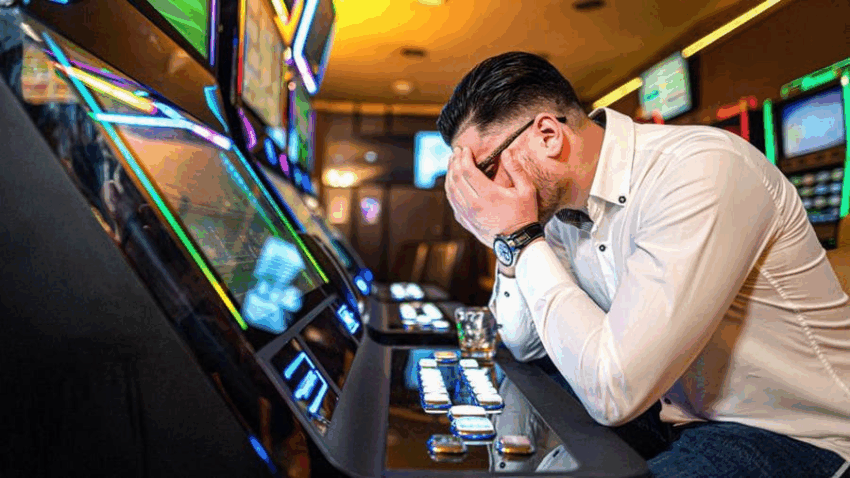Gambling addiction is a hidden struggle affecting countless individuals and families worldwide, often overshadowed by the glamour and excitement of betting. As we delve into the truths about gambling, it’s essential to acknowledge the significant risks it poses, including financial ruin and emotional turmoil. This addiction can be particularly rampant in the world of online gambling, where easy access exacerbates the problem and blurs the lines of moderation. The societal impact of gambling is profound, influencing everything from crime rates to public health, compelling legislators to take action. With the incorporation of AI in gambling and ongoing debates regarding gambling legislation, understanding these dynamics is crucial to fostering safer gambling practices for all.
The phenomenon of gambling dependency, often referred to as compulsive betting or gaming disorder, is a pervasive issue that transcends borders and demographics. As enthusiasts flock to both casinos and digital wagering platforms, the less visible consequences, such as addiction and socioeconomic strain, become starkly apparent. This not only affects individuals but also ripples through communities, provoking discussions about the societal repercussions tied to gambling activities. Alternative forms of betting, including sports wagering and online games, introduce new challenges particularly associated with gambling’s addictive qualities. Amidst evolving regulations and technological advancements, particularly regarding AI in gambling, it is imperative that society navigates these waters with acute awareness and responsibility.
Understanding Gambling Addiction and Its Risks
Gambling addiction poses significant threats not just to the individual, but also to families and communities. As the seductive allure of potential wins draws in millions, many fail to recognize the darker side lurking beneath. Studies indicate that gambling addiction can lead to severe consequences, including mental health issues like depression and anxiety. These psychological ramifications are compounded by financial turmoil, as addicts often resort to borrowing or stealing to fund their habits, spiraling into a cycle of despair.
The rise of online gambling has amplified these risks dramatically. With easy access to gambling sites at any hour, the barriers that once limited participation have diminished, and the potential for addiction has soared. Research has shown that individuals engaging in online gambling are often more isolated and may not engage with face-to-face counseling or support groups, further exacerbating their addiction. Understanding the pervasive nature of gambling addiction is crucial for individuals and their loved ones, as this awareness can pave the way for effective prevention and recovery strategies.
The Societal Impact of Gambling: A Closer Look
Gambling is often framed as a harmless pastime; however, its societal impacts can be anything but benign. As entertainment venues grow, particularly with the proliferation of casinos, accompanying issues such as increased crime rates cannot be ignored. Numerous studies have demonstrated a correlation between gambling establishments and higher incidents of theft and fraud in surrounding neighborhoods. Communities that welcome casinos frequently find themselves grappling with newfound crime and societal disruption, highlighting the urgent need for balanced regulations.
Moreover, the effects of gambling extend beyond crime to the very fabric of familial relationships. When addiction takes hold, it can devastate families, leading to broken homes and financial insecurity. Children growing up in environments where gambling is rampant may develop negative perceptions of money and risk, perpetuating a cycle of unhealthy gambling habits. As we navigate the complexities of gambling’s societal footprint, it’s crucial to advocate for legislation that prioritizes public safety and encourages responsible gambling practices to mitigate these devastating impacts.
Frequently Asked Questions
What are the key societal impacts of gambling addiction?
Gambling addiction significantly influences society, leading to increased crime rates, strained public resources, and family disruptions. Communities with high gambling activity often witness rising incidents of theft and fraud, while public services struggle to address the healthcare needs of those affected by gambling-related issues, highlighting the urgent need for effective gambling legislation and community support.
How does online gambling increase the risks of addiction?
Online gambling poses greater addiction risks due to its accessibility and constant availability. Studies show that individuals who gamble online are more prone to developing gambling addiction than those who gamble in-person. The unregulated nature of many online platforms can exacerbate these risks, making it vital to promote responsible gambling practices and ensure proper oversight in gambling legislation.
| Key Points | Details |
|---|---|
| Introduction to Gambling Risks | Gambling can lead to addiction, financial problems, and societal repercussions. |
| Higher Risks in Online Gambling | Studies show online gamblers are at a significantly higher risk for addiction. |
| Lack of Regulation for AI in Gambling | Unregulated AI could manipulate behaviors, heightening addiction risks. |
| Ongoing Legal Battles | Legal disputes reflect a need for oversight in gambling practices. |
| The Effect of Stricter Legislation | Legislative efforts aim to minimize addiction and enhance player safety. |
| Socioeconomic Impact of Casinos | Casinos can boost economies but also contribute to crime and community issues. |
| Responsible Gambling Practices | Set limits, educate yourself, and seek help to mitigate risks. |
Summary
Gambling addiction is a pressing issue that affects countless lives and communities. It transcends personal consequences, impacting families, relationships, and even local economies. As gambling continues to evolve with technology and changing regulations, the realization of its potential dangers must spark deeper discussions about responsible practices and awareness. The urgency to understand the shocking truths behind gambling addiction can no longer be ignored. By fostering informative discussions and promoting responsible gambling, we can protect our loved ones and support each other in navigating the challenges posed by this compelling but often dangerous activity.
